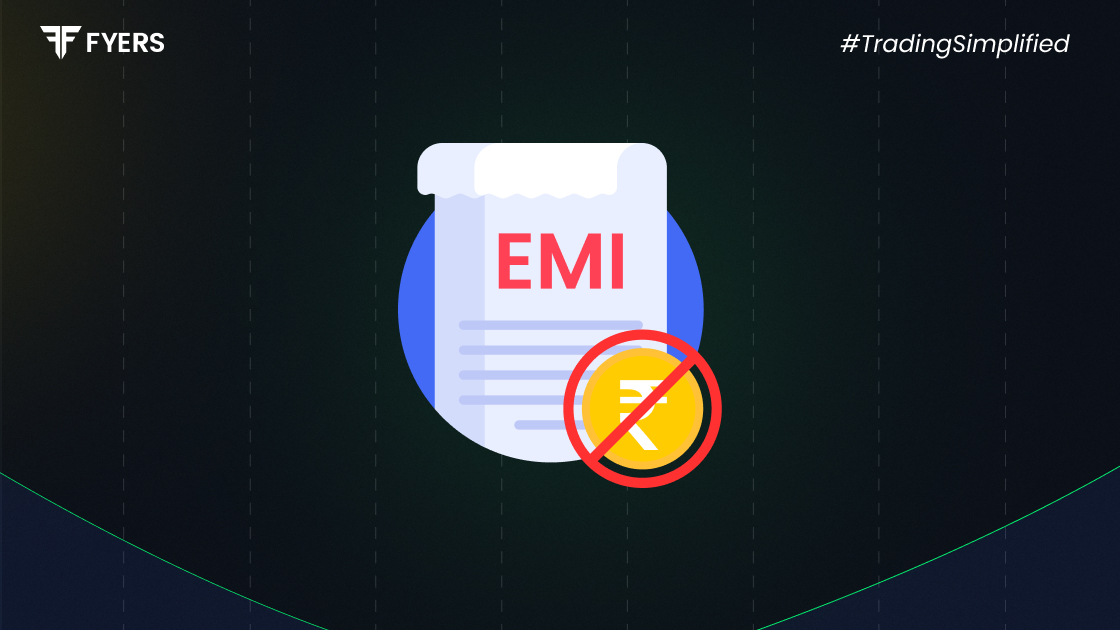

 19 Aug, 2025
19 Aug, 2025
 5 mins read
5 mins read

Buying high-value products like smartphones, appliances or furniture can be challenging for many people. One option that makes it easier is the "No Cost EMI" facility. But while it sounds like a great deal, it’s important to understand how it works before deciding.
This guide covers everything you need to know about no cost EMI: what it means, how it functions, its benefits, limitations, and things to keep in mind before choosing it.
No Cost EMI is a financing option that lets you buy a product and pay for it in monthly instalments without being charged any interest. In simple terms, it allows you to split your purchase into equal payments over a few months without paying extra.
On the surface, this sounds like a win-win. However, understanding the full picture is essential. No cost EMI meaning varies slightly based on how different banks or retailers structure the offer.
There are a few common ways in which no cost EMI is structured:
In this model, the interest on the EMI is actually charged by the bank, but the seller or brand offers a discount equal to the interest. So while you pay EMIs with interest included, the upfront discount makes the net cost equal to the original product price.
Some lenders may truly offer 0% interest but charge a processing or handling fee instead. You don’t pay more interest, but there is a small one-time charge.
In some cases, the seller inflates the product’s price slightly to cover the interest cost. You’re told it’s “no cost,” but the actual price includes the cost of financing.
So, when asking how does no cost EMI work, remember that the structure depends on who’s offering it and how transparent they are.
Understanding the no cost EMI benefits and disadvantages will help you make an informed decision.
Easy on Budget: Spread your payments over several months without interest.
Instant Ownership: You don’t need to save up; you can get the product immediately.
No Interest (Usually): If it's a genuine no cost EMI, you don’t pay more than the product price.
Widely Available: Offered by many brands and platforms on a wide range of products.
May Involve Hidden Charges: Some plans include processing fees or inflated prices.
Limited Options: Often available only on specific products, banks or credit cards.
Reduces Credit Limit: Your card limit gets blocked for the full amount initially.
Penalties for Default: Missing payments can attract high charges and hurt your credit score.
These no cost EMI disadvantages are important to consider before committing.
No cost EMI can be a smart option in the following situations:
You’re buying a high-cost item like a laptop or AC and don’t want to pay all at once.
The EMI plan is genuinely zero-cost with no hidden charges.
You have a stable income and are confident about repaying on time.
The product is necessary and not just a luxury.
On the other hand, if the EMI plan involves fees or raises the product cost, it might be better to avoid it.
The no cost EMI eligibility depends on the lender or platform. Here are common conditions:
Credit or Debit Card: Usually offered on select credit cards or high-value debit cards.
Minimum Purchase Value: Typically applicable only on items above a certain price, like ₹5,000 or ₹10,000.
EMI Tenure Options: You may be allowed to choose between 3, 6, 9, or 12-month EMIs.
Good Credit Score: Some platforms check your repayment history before approval.
It’s important to check the terms carefully and ensure you meet the requirements before applying.
If a no cost EMI is not available or suitable, here are a few alternatives:
Personal Loan: Offers flexibility but comes with interest.
Credit Card EMI: Often carries interest unless it’s a special offer.
Buy Now Pay Later (BNPL): Short-term financing with low or no interest, depending on provider.
Saving Up: The safest way if you can wait. No debt, no charges.
Each option has pros and cons. Compare them before making a decision.
Here are some useful tips to keep in mind:
Read the Terms: Check if the EMI really has no interest or hidden charges.
Compare Prices: Ensure the product price under EMI isn’t higher than the regular price.
Budget Wisely: Make sure the monthly payments fit your budget comfortably.
Avoid Unnecessary Buys: Just because it’s available doesn’t mean you need it.
Track Repayments: Missing EMIs can cost you more in penalties and affect your credit score.
Being cautious helps you make the most of the offer without financial stress.
No cost EMI is a useful payment option if used smartly. It helps you afford expensive items without paying interest, as long as the plan is truly cost-free. However, it’s essential to read the fine print, compare prices, and understand the terms clearly.
If used responsibly, it can be a great way to manage cash flow. But if taken without proper planning, it may lead to hidden costs or debt problems.
It can be, but not always. Sometimes, the cost is hidden in processing fees or adjusted product prices. Always read the terms and compare the total cost before choosing it.
Avoid it when the product price is inflated, there are hidden fees, or you’re unsure about repaying on time. It’s also better to skip it for unnecessary purchases.
There can be. Some plans may include a processing fee, higher product pricing, or penalties for delayed payments. Always check all charges before agreeing.
Yes. If you miss payments or delay EMIs, it can negatively impact your credit score. On-time payments help maintain or even improve your credit record.
Calculate your Net P&L after deducting all the charges like Tax, Brokerage, etc.
Find your required margin.
Calculate the average price you paid for a stock and determine your total cost.
Estimate your investment growth. Calculate potential returns on one-time investments.
Forecast your investment returns. Understand potential growth with regular contributions.